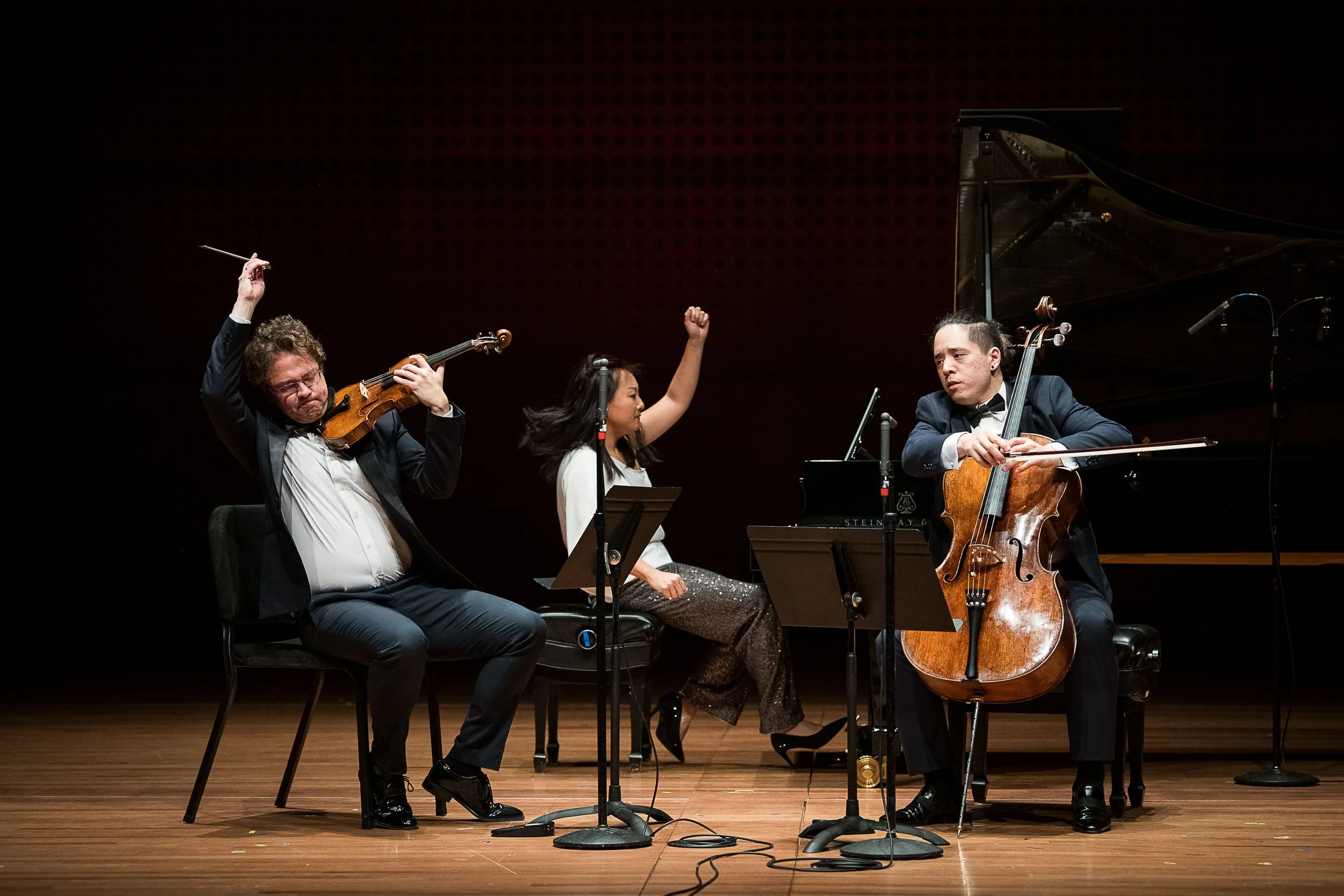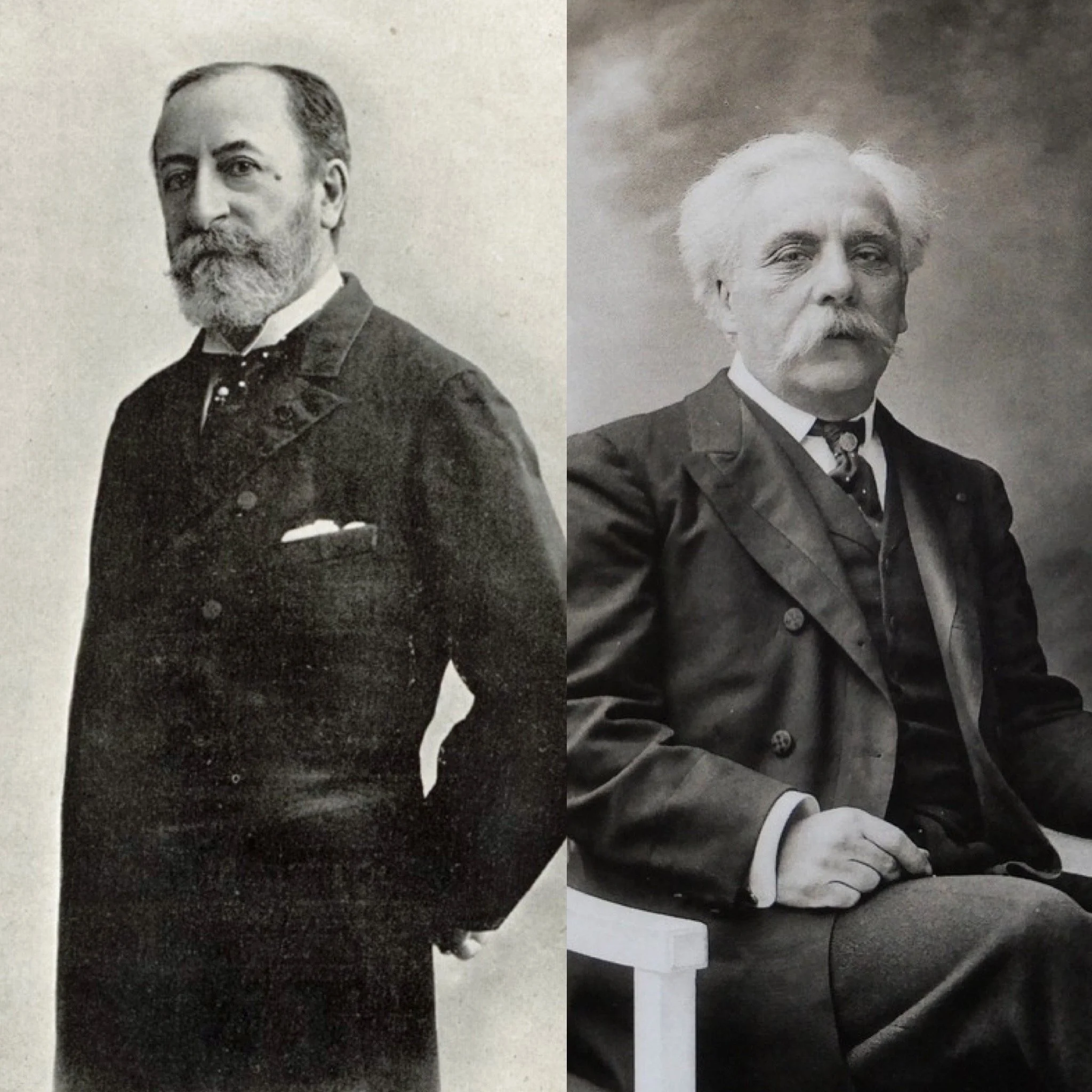REVIEW: The Soldier's Tale, with John Rubinstein, at CMS
Above, John Rubinstein narrates L’Histoire du soldat. Photo by Cherylynn Tsushima.
April 7, 2024
One of the more interesting and varied concerts of the season, Chamber Music Society of Lincoln Center filled Sunday afternoon with a program of “musical tales” spanning two centuries of music and multiple disciplines, too.
Violinists Richard Lin and Alexander Sitkovetsky set the tone, with a vivacious account of the Intrada-Suite in D Major, “Gulliver’s Travels,” by Georg Philipp Telemann. This 1728 programmatic work was modeled after the very popular satire of Jonathan Swift. Lin and Sitkovetsky played with panache and a sense of humor in this bizarre set of movements with titles such as “Loire of the Well-Mannered Houyhnhnms and Wild Dance of the Untamed Yahoos.”
Beam forward to the mid-1920s. Maurice Ravel’s Chansons madécasses (Madagascan Songs) for voice, flute, cello, and piano, is also a kind of musical travelogue. Tamara Mumford, assured and elegant, with the Cadillac of instruments, brought impeccable French diction, operatic poise, and accurate rhythm to Ravel’s art song settings of de Parny’s erotic and anti-colonial/anti-slavery poetry.
Cellist Mihai Marica’s expressive bow and warm, yet piercing tone was ideal in the lyrical yearning phrases underscoring text such as “Your kisses reach right into my soul; your caresses set all my senses ablaze: stop, or I shall die.” Pianist Ken Noda, with the lid fully opened, favored rhythm over color, and some passages sidestepped eroticism for urgency.
Tamara Mumford at Chamber Music Society of Lincoln Center. Photo by Cherylynn Tsushima.
The mood shifted subtly, but palpably, in the following tale, Il tramonto (The Sunset) for mezzo-soprano and string quartet, by Ottorino Respighi. This 1914 Italian setting of a poem by English poet Percy Shelley gives the singer a glowing, plush bed of accompaniment no piano can replicate. The text, which recounts the death of a lover, provides the vocalist with emotional content to dig into, and Mumford’s compassionate, generous reading was moving, well supported by the fluid texture of the string quartet, led gracefully by Lin, ravishing on the first violin.
Photo by Cherylynn Tsushima.
All of this was a warm-up act, it turned out, for the headline event: The Soldier’s Tale, narrated by Tony-winning actor, concert performer, and educator John Rubinstein. Igor Stravinsky’s L’Histoire du soldat for narrator and seven piece ensemble was composed in 1918 as a setting of a Russian folk tale, text by Charles Ferdinand Ramuz, whose rhyming couplets combine the aesthetics of Peter and the Wolf with Chekov, punctuated by some stale sermonizing at the end.
The septet CMS assembled was virtuosic. Ayano Kataoka on percussion, Weston Sprott on trombone, Brandon Ridenour on trumpet, Peter Kolkay on bassoon, and Sebastian Manz on clarinet played Stravinsky’s bubbly, bouncing figurations brilliantly. Bassist Joseph Conners anchored the hour-long score with an expressive sense of pulse and line, and Sitkovetsky, on the fiddle, served as an avatar for the main character, the soldier who forgets, then remembers how to play the instrument that underscores his identity. Rubinstein’s voice is full of character, clarity, and logic. His skills — his sheer, immense, presence — made the story riveting, and the morals compelling.






